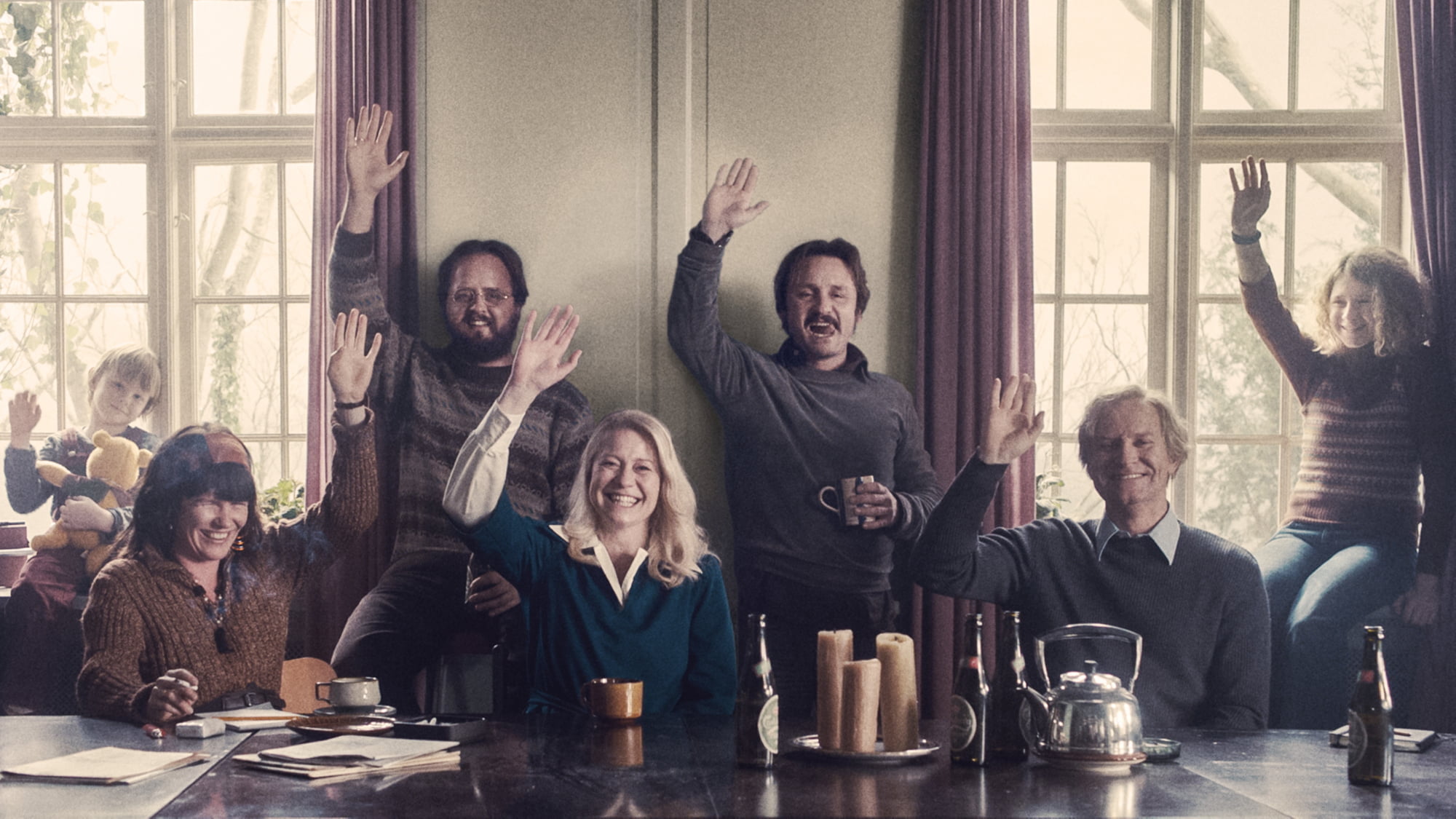One should always try to make the title of their film a reflection of their subject matter, either directly or symbolically. Danish filmmaker Thomas Vinterberg’s semi-autobiographical motion picture The Commune doesn’t do that. Despite the fact that it takes place among members of a commune in swinging mid-1970s Copenhagen, nothing that happens in this lightweight marital drama needs to take place in the titular location at all. The Commune boasts a good idea, and then wastes it on a completely different, less engaging story.
Erik Møller (Ulrich Thomsen), a struggling university professor and architect, has just inherited his massive childhood home. Initially, Erik wants to sell, worried about the high cost of living and wanting to provide for his newscaster wife, Anna (Trine Dyrholm), and 14 year old daughter, Freja (newcomer Martha Sofie Wallstrøm Hansen). Anna floats the suggestion that they take on roommates in a communal living situation, and she quickly calls on friends and acquaintances to fill out the massive home.
That’s the set-up of The Commune as adapted by Vinterberg (The Celebration, The Hunt, Far from the Madding Crowd) from his own stage play, Kollektivet and the director/co-writer’s own experiences growing up in a housing collective with his parents until the age of nineteen. In quick succession, the audience is introduced to a number of potentially interesting characters worth following: the cuckolded leftist Ole (Lars Ranthe), the dominant Ditte (Anne Gry Henningsen) and her milquetoast husband Steffen (Magnus Millang), the sexually empowered Mona (Julie Agnete Vang), and Allon (Fares Fares), a sensitive foreign day labourer who doesn’t even have enough money to move in.
One would initially suspect that The Commune would be about how each of these personalities, combined with the dynamics of the Møller family, would clash with one another. Indeed, there are a few moments where these people do butt heads, but it’s mostly over Allon being able to pay his share of the rent or trying to get the commune’s beer money fund back on track, and even these superfluous bits are few and far between.
After the first twenty minutes, Vinterberg has nothing left to set up with any of the peripheral characters, and before the first hour of the film has ended, he has run out of anything new to say about communal living. In almost the same amount of time that it takes to read this review, Vinterberg stops trying to develop any of the characters listed above, making one wonder why even bothering having them in the film at all. These characters living with the Møllers barely have any personality traits, save for Ditte and Steffen, who also have a terminally ill 6-year old son who will be used not once, but twice as a manipulative plot device to goose the audience in moments that still have nothing to do with the core storyline. Even Vinterberg’s female story surrogate, Freeja, feels robotic and out of place.

The core of The Commune revolves around Erik starting up an affair with one of the third-year students from his university, Emma (Helene Reingaard Neumann), and the two of them falling madly in love. Erik wants Emma to move into the commune. The fellow residents find this uneasy, but all of them including Anna, are complicit in the relationship. Emma uncannily looks like a younger version of Anna, and the comparable alliteration of their names is only the second and third most annoyingly on the nose parallels Vinterberg comes up with, respectively. The most on the nose beat being Emma and Erik having noisy sex while Anna’s news broadcast plays in the background.
Essentially, the communal environment only exists to make this love triangle seem more of its time and socially acceptable, but this robs Vinterberg’s premise of any sense of originality and the affair of feeling like anything more than soap opera fodder. When the story pivots from the ups and downs of shared, socialized living arrangements, no one except for the leads are allowed to come along and tell any of the story ever again. The only person who seems truly affected by Erik’s affair is Anna, and all of the dramatic heavy lifting falls to the exceptional Dyrholm, who singlehandedly rescues the film’s second half from complete tedium. The marriage between Erik and Anna never seemed all that unhappy prior to the affair, so all Thomsen can do is act like a duplicitous prick. Dyrholm, who won an award at the Berlin International Film Festival for her efforts here, has to enhance a rather thin, often implausible premise. It’s easy to feel for Anna’s plight thanks to Dyrholm’s emotionally powerful work, but it’s often impossible to care about any of this on the whole.
The Commune builds to a mournful, easily telegraphed conclusion that doesn’t hit with any real weight because Vinterberg has forgotten everything he set up in favour of the affair angle, and things end with a curious whimper rather than a dramatic bang. There’s no interesting narrative or formalist way of looking at The Commune, but it feels so bitterly personal that a Freudian reading would probably be best. To do so, one would have to get deep inside the head of Vinterberg, and from what’s on display here, that seems easier said than done. As it stands, The Commune feels like a television show where all but one episode has been erased from existence.
The Commune opens on Friday, May 19, 2017 at TIFF Bell Lightbox in Toronto, Globe Cinema in Calgary, and Broadway Theatre in Saskatoon.
Check out the trailer for The Commune:
Join our list
Subscribe to our mailing list and get weekly updates on our latest contests, interviews, and reviews.

